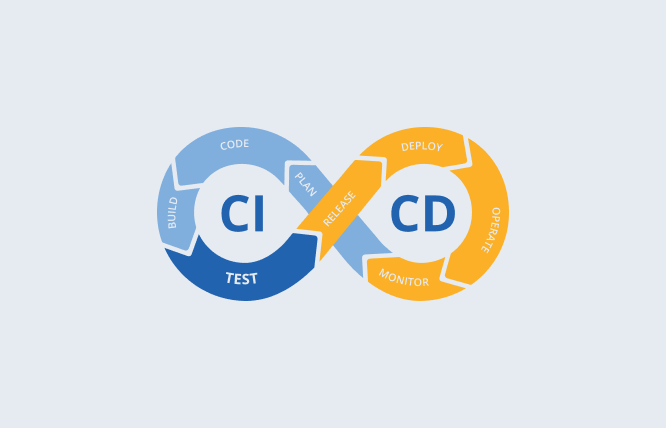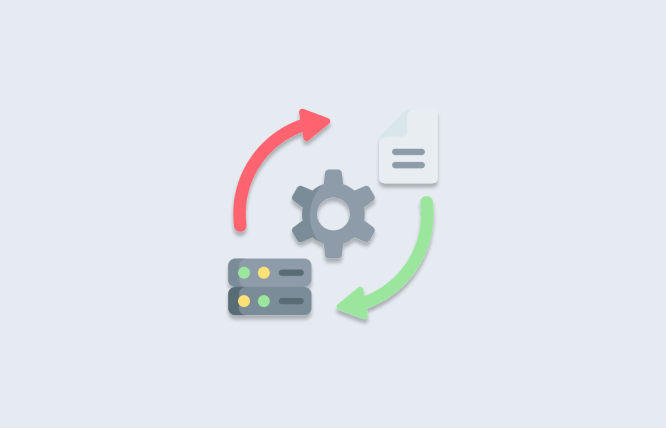Introduction
This blog delves into how CI/CD tools make software development more efficient by automating important tasks. It explores various types of tools, popular choices, and factors to consider when selecting the best option for your team. It also emphasizes the advantages of receiving expert help to facilitate the implementation of CI/CD.
Software development has been highly influenced by trends and tools that may speed up development and enhance the quality of software. You might wonder knowing the fact that the well-established CI/CD pipelines deploy code 30 times faster and experience 50% fewer failures.
That’s the power of modern Tools for CI and CD. These game-changers automate critical stages of the development process, streamline complex workflows, and accelerate software delivery.
However, with multiple CI/CD tools available these days, choosing the right one can be difficult. This comprehensive blog dives deep into the Top Tools for CI and CD, helping you select the perfect fit for your organisation.
Different Types of CI/CD Tools
CI/CD tools come in various flavours, each catering to specific requirements. Here’s a quick overview of the top categories:
- Open-source tools: Similar to Jenkins, these tools are available for free and provide a wide range of customisation options. Nevertheless, they frequently need a higher level of technical knowledge for both installation and maintenance.
- Cloud-based tools: Provided by leading cloud providers such as AWS and Azure, these tools effortlessly connect with their corresponding cloud platforms and are typically more user-friendly. Nevertheless, you could be restricted within that particular cloud ecosystem.
- Self-hosted tools: These tools are set up and controlled on your own infrastructure, providing complete control and flexibility. Nevertheless, setting up and maintaining them necessitates extra IT resources.
Tools for CI and CD
Now that we’ve explored the advantages of CI/CD pipelines let’s examine the specific tools that can assist in making your IT procedures more efficient. Below is an overview of a few of the most widely used CI CD choices:
Jenkins
This open-source powerhouse is a favoured option due to its adaptability and extensive selection of plugins (over 1,700!). Jenkins effortlessly connects with a variety of development tools and supports extensive customization. This makes it suitable for complex workflows and integrating with nearly any tool in your development stack. However, the high degree of configurability also means it requires more technical expertise to set up and maintain effectively.
CircleCI
Known for its simplicity and emphasis on faster operations, CircleCI is an ideal choice for smaller teams or beginners in CI/CD. It provides a simple interface and ready-made configurations for common development platforms like GitHub and Bitbucket. CircleCI also excels in continuous delivery, facilitating fast and frequent deployments with features like parallel execution and containerized builds. This allows teams to iterate quickly and deliver features to users faster.
GitLab CI/CD
If your team uses GitLab for version control, their built-in CI/CD solution offers a convenient and streamlined experience. It’s seamlessly integrated within the GitLab interface you’re already familiar with, boosting collaboration and reducing context switching. GitLab CI/CD covers the entire development lifecycle; it lets you build the code, test it, and deploy the applications, all within a single platform. This can simplify your workflow and improve developer productivity.
Azure DevOps
Azure DevOps offers numerous tools for DevOps practices like CI/CD. It also provides a robust CI/CD pipeline.This makes it a great choice for companies already invested in the Microsoft Azure cloud platform. These tools integrate seamlessly with Azure services, allowing for efficient deployment and management of applications within the Azure ecosystem. Additionally, the interface is familiar to users of other Microsoft products, reducing the learning curve.
AWS CodePipeline
In the same way, Amazon Web Services (AWS) has its own CI/CD service called AWS CodePipeline. This tool is ideal for teams heavily reliant on AWS services. AWS makes it easy for technical individuals to create, test, and deploy applications entirely within the AWS infrastructure. CodePipeline integrates with various AWS services for building, testing, and deployment, offering a unified experience for managing your applications on AWS.
These are just examples. The right tool depends on your needs and preferences. Consult a professional DevOps service provider to understand tasks better.
Choosing the right type of CI/CD tool depends on your comfort level with managing infrastructure, budget constraints, and existing cloud usage.
Choosing the Right CI/CD Tool for You
With a variety of CI/CD tools available, selecting the perfect one for your organisation can feel overwhelming.
Here are some key considerations to guide your decision:
Team Size and Expertise
CircleCI is beginner-friendly. Smaller teams or those new to CI/CD might benefit from CircleCI. Conversely, larger teams with experienced developers might prefer the flexibility and customisation options offered by Jenkins.
Existing Development Tools
Consider the tools your team already uses. If you’re heavily invested in GitLab for version control, their built-in CI/CD solution offers a smooth integration. Similarly, for Microsoft Azure users, Azure DevOps provides a familiar and cohesive experience.
Cloud Infrastructure
If your organisation uses a specific cloud platform like AWS or Azure, their respective CI/CD solutions (AWS CodePipeline and Azure DevOps) might be the most efficient choice. Still, to create a robust cloud infrastructure you must get the assistance of an Azure cloud consulting company.
Budget
Open-source tools like Jenkins are free to use but require more technical expertise for setup and maintenance.
Cloud-based business management solutions often have different pricing tiers based on features and usage. It’s better to evaluate your budget and the value proposition of each tool then make a choice.
Remember: There’s all-in-one type of solution. Experiment with different tools or seek guidance from a CI/CD professional to help you find the best fit for your specific needs.
Why CI/CD Matters for Streamlining IT Processes
Traditional software development is no longer an effective way of developing an effective application. It can be slow and error-prone.
We all agree with the fact that manual code building, testing, and deployment lead to bottlenecks and inconsistencies. That’s where CI/CD tools come in. The given below CI/CD tools list addresses these challenges by automating key stages of the development lifecycle:
- Continuous Integration (CI): Every code change triggers an automated build and testing process. This catches bugs early and ensures code quality remains high.
- Continuous Delivery (CD): Automated deployments eliminate manual errors and expedite software releases.
By automating these tasks, CD tools in DevOps free up valuable developer time and resources. This lets you focus on innovation and delivery of high-quality features faster.
The Benefits of Automating Your Development Pipeline
The advantages of using CI/CD tools are numerous. For instance, using the CI/CD tools list, you can expect to:
- Eliminate manual tasks, streamline microservices design and development workflows, and boost team productivity.
- Automate testing to catch bugs early and prevent them from reaching production environments.
- Streamline software development pipelines to enable faster and more frequent software deployments.
- Reduce human errors and ensure consistent delivery processes.
- Enhance collaboration through effective collaboration between development and operations teams.
The advantages result in a competitive edge of CI/CD tools for your company. Quick software releases will also enable you to quickly respond to market demands and provide new features to users sooner.
Consulting With Professionals for CI/CD Integrations
Implementing a CI/CD pipeline can be complex and time taking, especially for organisations new to these practices. Therefore, a good move will be to consult with experienced professionals who provide valuable benefits:
- Expertise in CI/CD Tools: Professionals can assess your needs and recommend the most suitable CI/CD tool based on your existing infrastructure and development processes.
- Streamlined Integration: They can help you integrate the chosen CI/CD tool seamlessly with your existing development workflow, ensuring smooth operation.
- Custom Configuration: For complex environments, professionals can configure the CI/CD tool to meet your specific requirements, optimising your development pipeline for efficiency.
- Ongoing Support: Consulting firms often provide detailed services and ongoing support, and they troubleshoot any issues that arise to ensure your CI/CD pipeline runs smoothly.
Considering a DevOps managed service provider (MSP) can be a great option.They will provide all-encompassing enterprise technology solutions, which encompass CI/CD implementation and continuous maintenance. This relieves you from performing repetitive tasks and allows you to concentrate on essential development tasks, while also maintaining a strong and efficient CI/CD pipeline.
By thoroughly assessing your requirements and possibly consulting with experts, you can select suitable CI/CD tools to efficiently optimize your IT procedures, speeding up software deployment and enhancing overall development productivity.
Conclusion
CI/CD tools are a game-changer for fast software development. They automate tasks, speed up delivery, and boost quality. Jenkins and cloud-based options are popular picks that you can rely on. Choose wisely by considering your needs.
However, get expert advice or team up with a DevOps service provider. With the right tools, professionals, and know-how, your team can churn out top-notch software quickly, giving you an edge.
Frequently Asked Questions
The ease of implementing a CI/CD tool varies based on the tool being used and the technical skills of your team. Jenkins, an open-source tool, provides greater flexibility but needs additional configuration. Cloud-based solutions are usually simpler to configure but might necessitate knowledge of the specific cloud platform. Seeking guidance from a CI/CD expert or web and application developer can streamline the installation process and guarantee seamless operation.
Cloud-based CI/CD tools offer several advantages:Ease of use: Often requires minimal setup and comes with pre-built configurations.Scalability: Can easily scale to accommodate your growing needs.Integration: Seamlessly integrate with other services offered by the same cloud provider.Maintenance: The cloud provider handles maintenance and updates.However, cloud-based solutions might lock you into a specific cloud ecosystem and may have associated subscription costs.
Absolutely! Even small teams can benefit significantly from CI/CD practices. User-friendly tools like CircleCI offer a gentle introduction to CI/CD and can automate key tasks, freeing up valuable developer time and improving development efficiency.
Open-source tools are available at no cost, however, they necessitate a higher level of technical skill for installation and upkeep. Cloud-based solutions typically offer various pricing levels that are determined by the features included and the level of usage. Assess your budget and the worth of each tool before making a choice.
Consulting with a CI/CD professional can be very beneficial, especially for organisations new to these practices. They can provide expertise in tool selection, ensure seamless integration, optimise your pipeline, and offer ongoing support. Consider partnering with a DevOps-managed service provider for a comprehensive solution that includes CI/CD implementation, maintenance, and expert guidance.
Yes, CI/CD tools automate custom mobile app development and testing, speed up deployment, and improve collaboration.Here’s how:Automated Builds and TestingFaster DeploymentImproved CollaborationFor more detailed services, Consider getting Kubernetes consulting services for a smooth transition into an app project.
Have questions or feedback?
Get in touch with us and we‘l get back to you and help as soon as we can!


